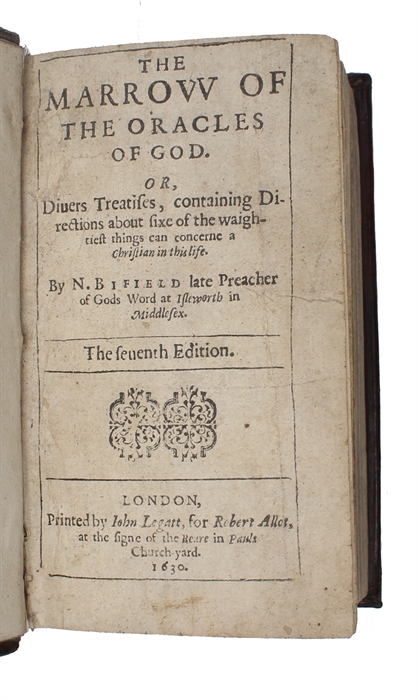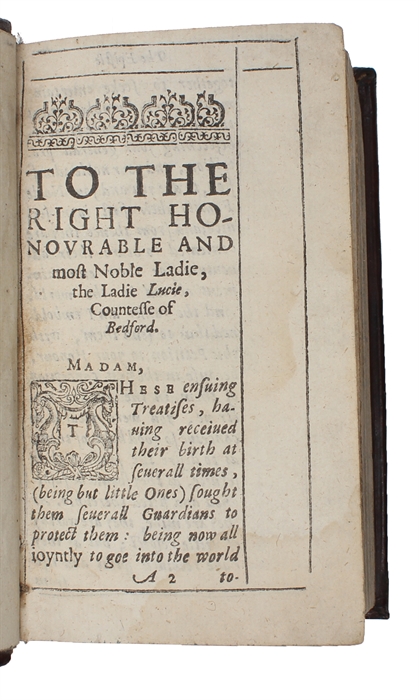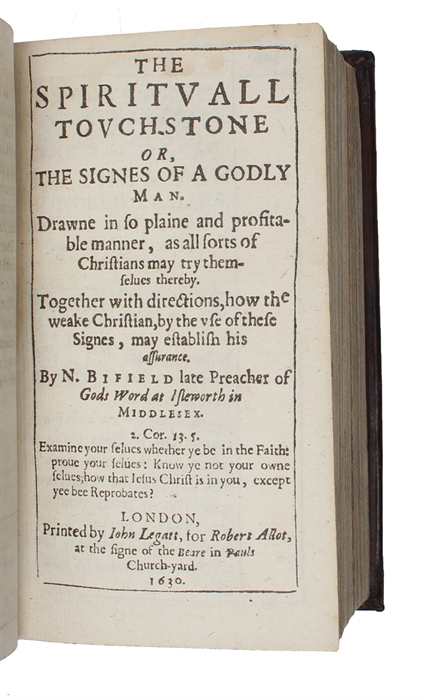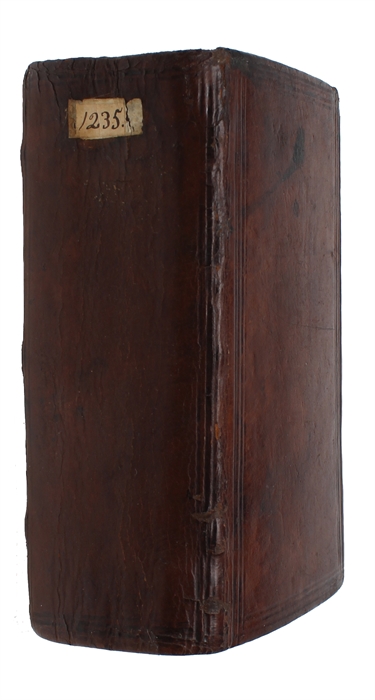BIFIELD, NICHOLAS (BYFELD).
The Marrow of the Oracles of God. The seuenth edition. (+) The principles, or, The patterne of wholesome words Containing a collection of such truths as are of necessitie to be belieued unto saluation. The fourth edition.
London, John Legatt for Robert Allot, 1630 (Both works. "The Principles..." having two title-pages, the last stating:) London, Beale for Philemon Stephens & Christopher Meredith, 1630.
12mo. In contemporary full calf. Small paper-label pasted on to top of spine. Light wear to extremities, corners bumped and boards with a few marks and stains. First leaves slightly soiled and a few leaves with tears but internally generally nice and clean. (22), 639, (1) pp.; (22), 767 pp.
Seventh edition of Byfield’s work containing several treatises on “the weightiest things can concern a Christian life”. The first edition being published in 1620. Nicholas Byfield (1579–1622) was a prominent religious figure in England during the late 16th and early 17th centuries, known for his Calvinistic Puritan beliefs. He was born in Warwickshire around 1579, and although he attended Oxford University, he didn't graduate. Instead, he became a preacher and was initially bound for Ireland but ended up staying in Chester due to his popularity as a preacher there. In 1611, Byfield became involved in a controversy regarding Sabbath observance when a young man he had instructed, John Brerewood, refused to work on Sundays based on Byfield's teachings. This sparked a debate between Byfield and Edward Brerewood, John's uncle, which was later published as "A Learned Treatise of the Sabaoth" in 1630. In 1615, Byfield became the vicar of Isleworth, where he served diligently until his death in 1622 at the age of around 43. He suffered from kidney stones for many years, which ultimately contributed to his death. Byfield was survived by his wife Elizabeth and at least eight children, one of whom was named Adoniram. (See DNB).
Order-nr.: 60843




